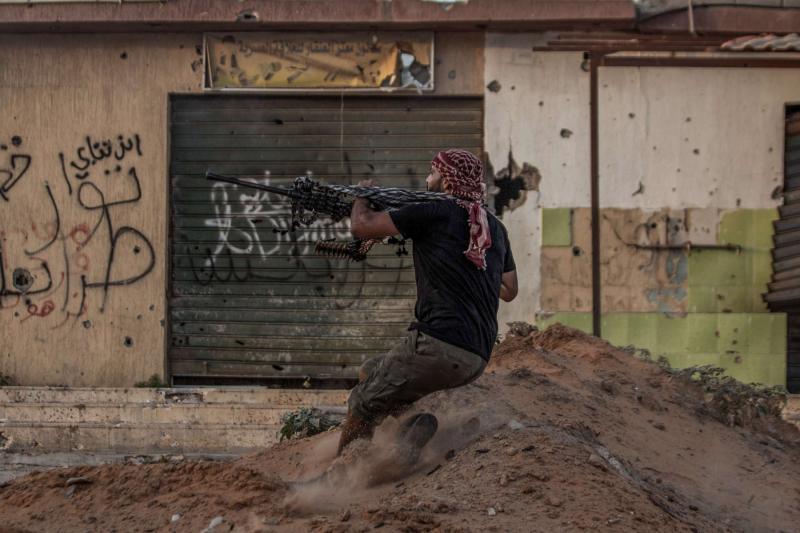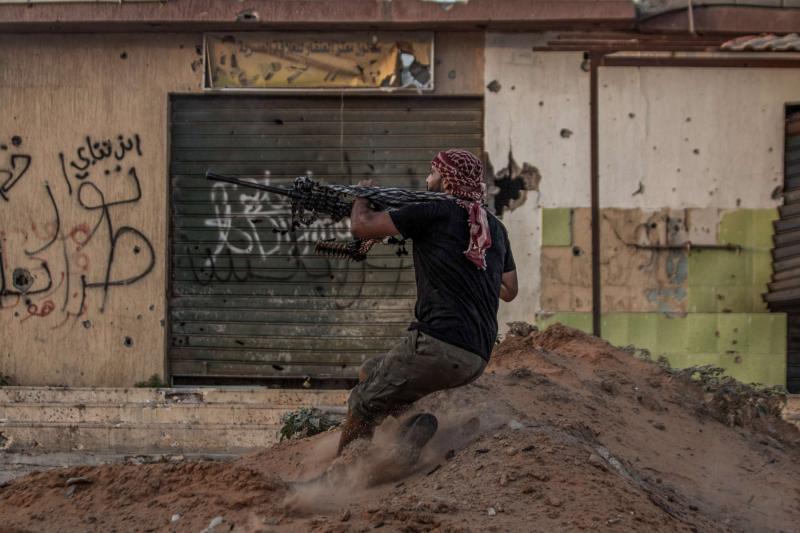Tripoli sees bloody day as UN envoy lobbies for ceasefire
TUNIS - The Libyan National Army stepped up its offensive in Tripoli, killing at least 21 militiamen and losing nine soldiers in one day of fighting.
The death toll, exacerbated by increased air strikes, made August 1 one of the bloodiest days of fighting in the nearly 4-month battle for control of the capital. Most of the fallen Libyan National Army (LNA) soldiers were from Benghazi, while the 21 slain militiamen were mostly from Misrata, statements from the groups said.
The LNA began its Tripoli offensive April 4, advancing from the city's southern outskirts and fighting an array of Islamist militias and other groups aligned with the UN-backed Government of National Accord.
Misrata’s militias are the strongest Islamist force in Libya and are the main military rival to the LNA but their heavy losses suggested that the LNA strategy of gradually fighting off militias until it can advance into the city centre may be paying off.
Sadiq al-Ghariani, a spiritual guide for many Libyan Islamists, on July 8 expressed concern about the militias’ campaign, saying he was “shocked by the large number of the Misrata fighters killed during the past week."
"We have to reverse the failures that led to the loss of such a high number of fighters,” he added.
Fighting between the LNA and militias since early April has killed more than 1,000 people, the United Nations said.
Battle lines have hardly moved since the offensive began but fighting intensified August 1 as the LNA increased air strikes against militia positions south of Tripoli. LNA planes attacked militia fortifications in Gharyan, 100km south-west of Tripoli.
The LNA "made a tactical withdrawal" from its key base in Gharyan June 27 when it was captured by Islamist militias, bolstered by Turkish military support.
Libya was thrown into chaos after a 2011 NATO-backed uprising toppled long-ruling strongman Muammar Qaddafi. Armed Islamist groups, including jihadists, have since operated in Tripoli and other western Libyan cities. The country has also emerged as a major transit point for migrants fleeing war and poverty for Europe and a security threat to neighbouring countries.
Many nationalist and secularist groups in Libya and in the Arab region consider LNA Field-Marshal Khalifa Haftar as Libya’s best chance of restoring order. Egypt, the United Arab Emirates and Saudi Arabia have lent support to the LNA as a bulwark against the Muslim Brotherhood and other Islamist groups backed by Turkey and Qatar.
The LNA and competing militias are increasingly using planes and drones, taking the battle to nearby towns.
LNA spokesman Colonel Ahmed al-Mismari said the LNA's air force had attacked ten targets, including the Misrata military academy used as a base for militias, since June 27.
"The militias have no longer any significant fighting force in the battlefield. The militias are increasingly focusing on air strikes using some Turkish drones, two of which had been downed by our forces," said Mismari.
"Our air forces are continuously combing all the areas from Azizia on the outskirts of Tripoli to the town of Gharyan to hit the positions of the militias all along this line."
Mismari said: "We dominate the sky over these areas and all the militia positions are under our fire from the air."
Tripoli-aligned militias struck at the LNA's base at Jufra, 650km south of Tripoli.
The LNA captured Jufra from the Islamist Benghazi Defence Brigades in mid-2017 as it moved through eastern and southern Libya.
Islamist militia commander Osama Jouili said: "Jufra base is used to fly drones by night and other warplanes day and night. It is the main base for mobilisation of forces against us.”
Libyan media reported that intensified fighting could be followed by a major LNA incursion into the centre of Tripoli. There were reports that Haftar met with field commanders to discuss a "comprehensive assault" on Tripoli.
UN Special Envoy to Libya Ghassan Salame is pushing for a ceasefire on the Muslim holiday of Eid al-Adha, August 11.
"The decision to stop the war cannot be postponed indefinitely,” Salame told the UN Security Council.
His proposed that a ceasefire be followed with confidence-building measures, including prisoner exchanges and the return of fallen fighters’ remains. He said he wanted a “high-level meeting of concerned countries” to help cease hostilities and "a Libyan meeting of leading and influential personalities from all over the country to agree on comprehensive elements for the way forward.”
Salame warned that "it should be abundantly clear to all that the risks of either an open-ended, low-intensity conflict or a full escalation to outright war on the shores of the southern Mediterranean are equally unacceptable."
He said the main roadblock to a ceasefire was that "parties still believe they can achieve their objectives through military means.”
Lamine Ghanmi is a veteran Reuters journalist. He has covered North Africa for decades and is based in Tunis.
This article was originally published in The Arab Weekly.




